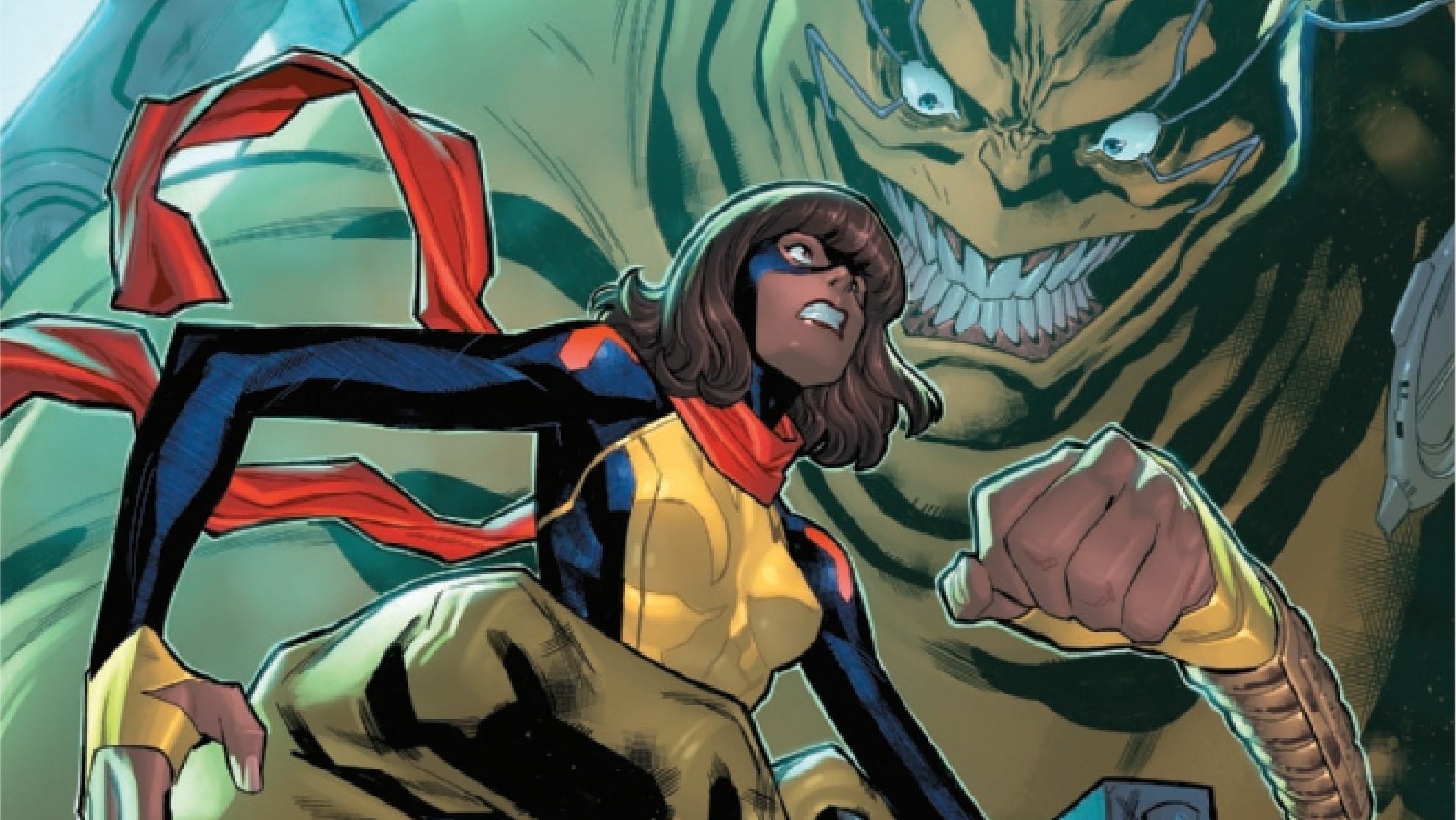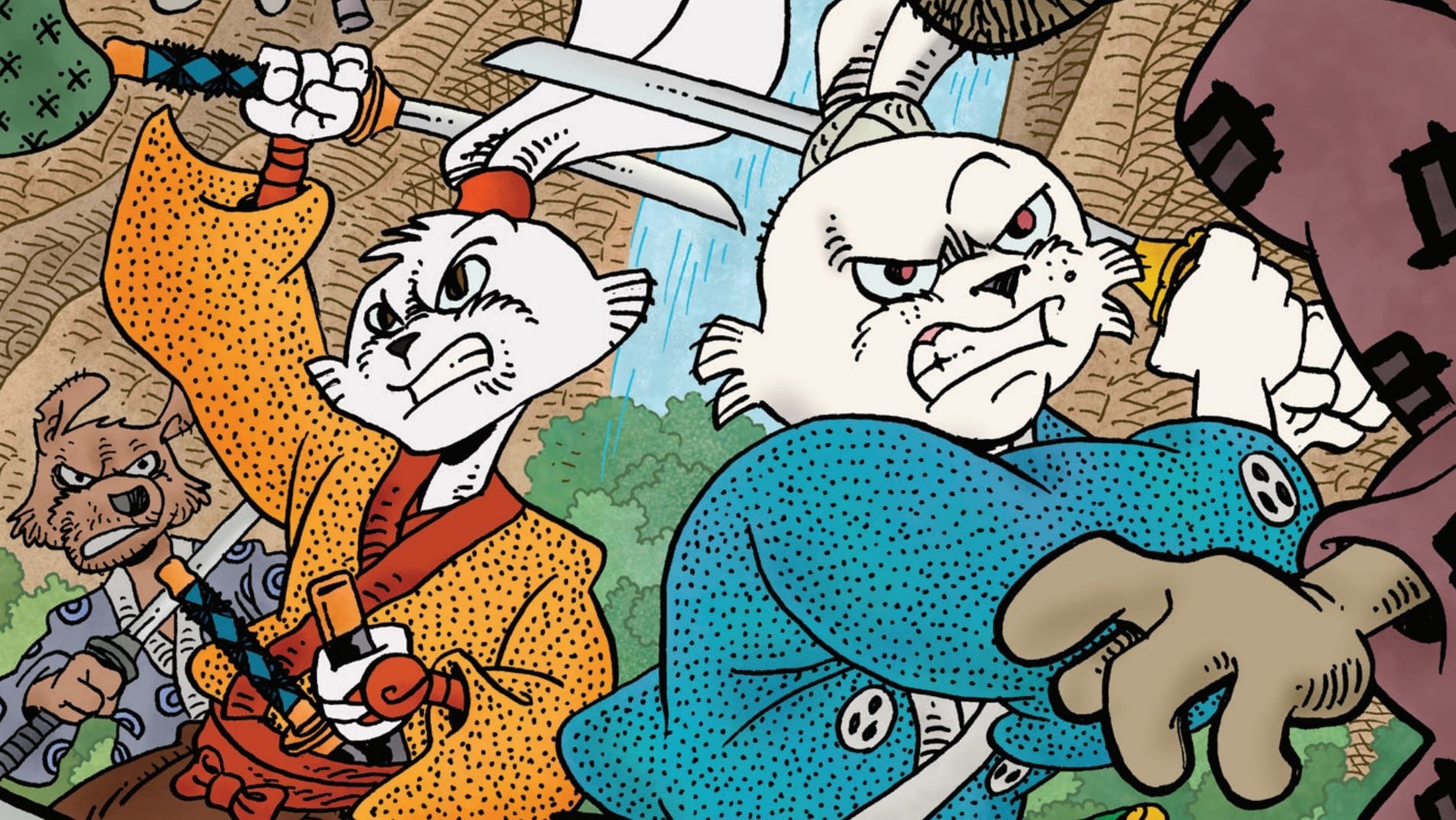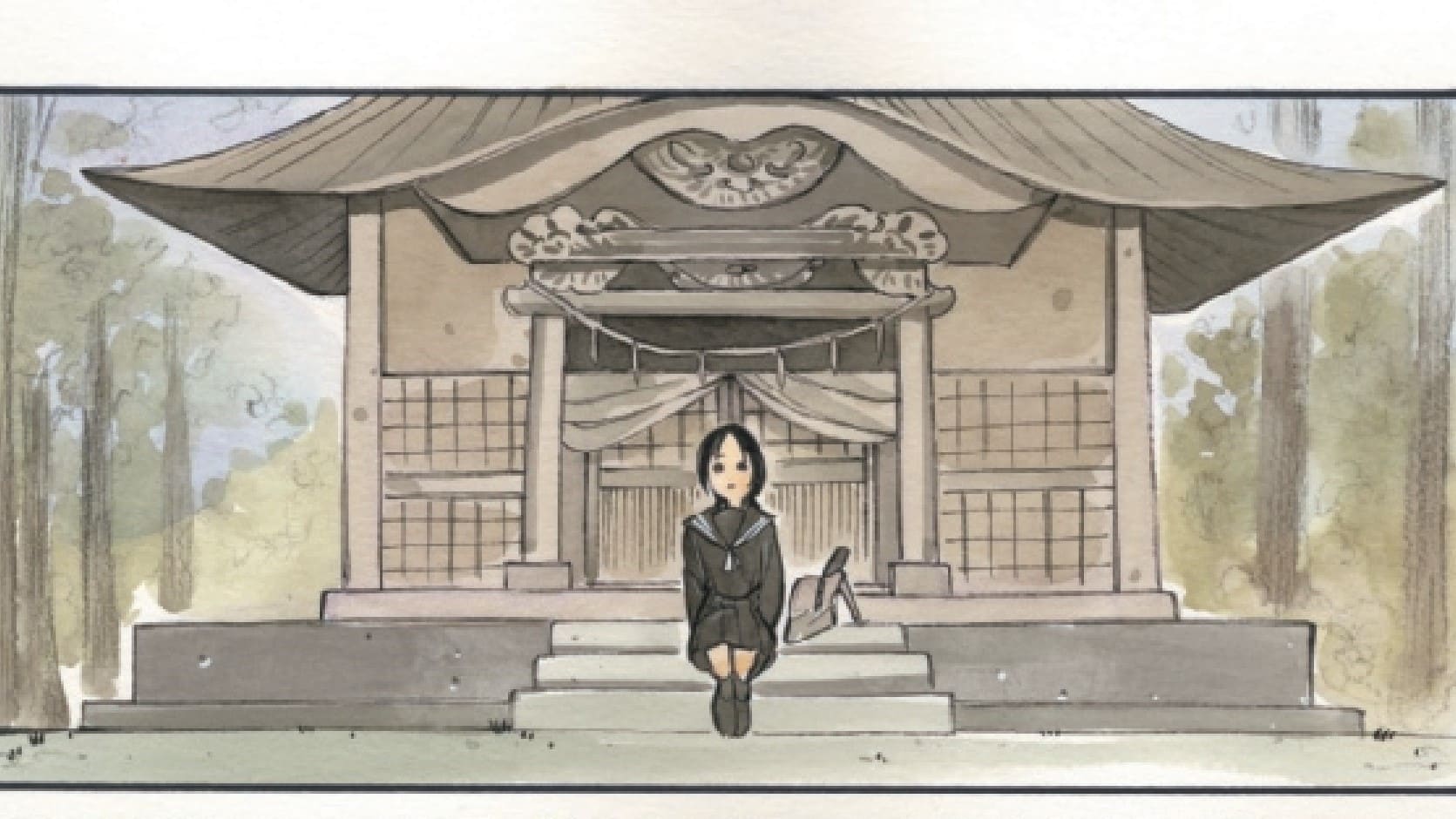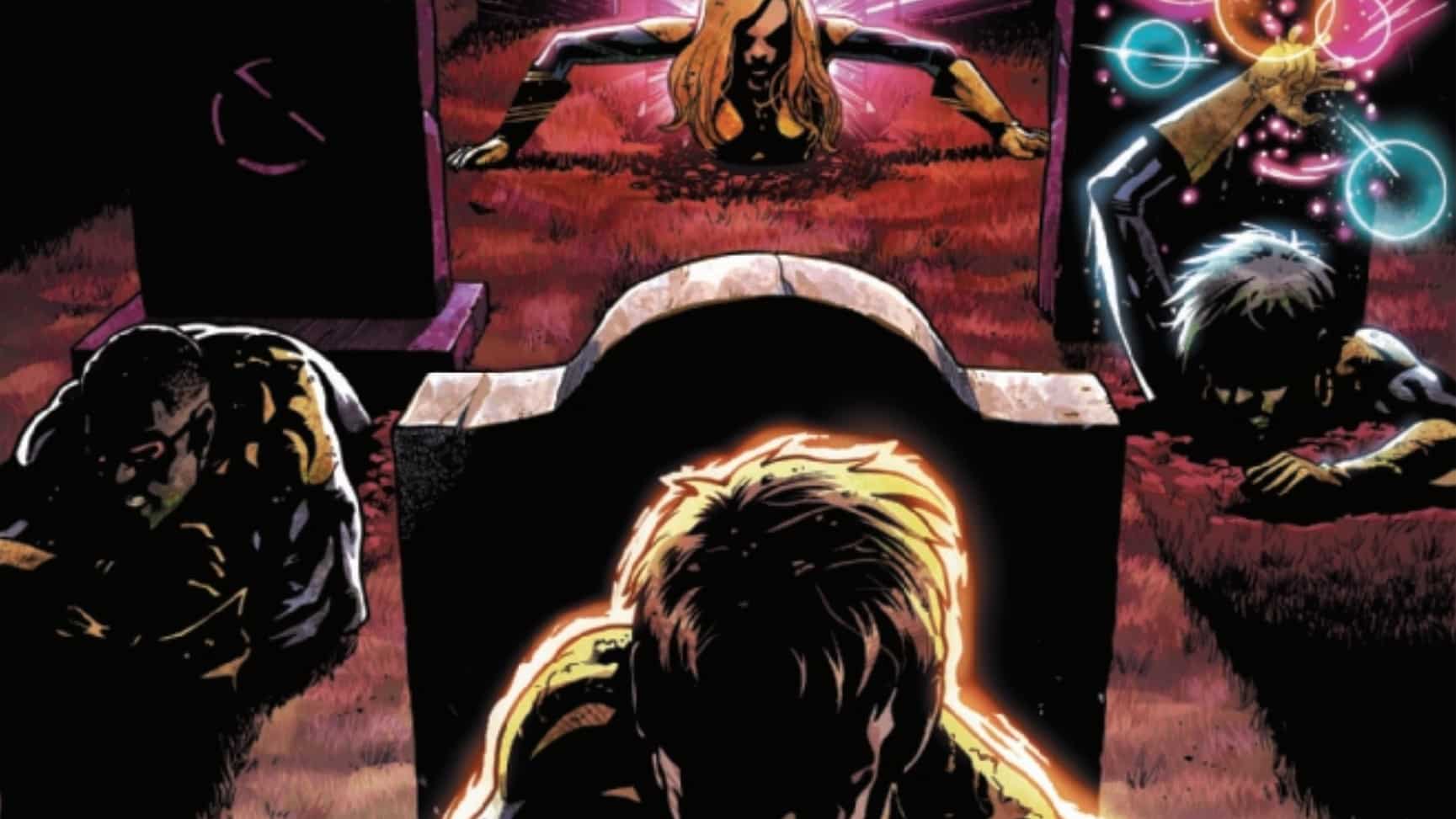Are Marc Spector and Steven Grant stuck in the afterlife, forced to relive their memories in an attempt to become whole and balance the scales? Or has Marc truly imagined everything, and is really a man coming to grips with his delusions in a psych ward? Wherever the answers lie, they’re all dwarfed by the biggest question of all: what is Marc hiding?
Armaan Babu: It’s a waning crescent moon tonight, though we’re less focused on what’s there, and more on what isn’t there. In the penultimate episode of this series (wow, time flew right by. I blame Khonsu’s sky changes), we finally learn Moon Knight’s origins. Some major pieces of the puzzle are slotted in — though that doesn’t mean that there aren’t still questions left to answer. A new mind joins me on this journey as we take a closer look at what we’ve learned. Welcome, Sean Dillon! How’ve you been enjoying the show so far?
Sean Dillon: I’ve mostly been on the positive side of things, which is surprising considering the larger output of Marvel’s television output has left me cold. (Or, at best, collapsed into coldness by this point in their runs.) But this seems like it could be the first Marvel show to stick the landing for me. When it comes to this episode though, despite overall liking the piece, I felt like something was… missing? Maybe talking with you will help me put things into words?
Armaan: Look, talking things out to figure out what’s missing is very much the theme of this episode, so there’s no better time for that. Let’s talk.
A Harrowing Hippo-thesis

Armaan: So one thing that Austin Gordon and I enjoyed from the last episode is that the show doesn’t even remotely seem to have tried to convince us that the psych ward is the true reality, so I was surprised when we saw a return to Doctor Harrow’s office here. As the episode goes on, though, we find it’s less about the audience — and more about Marc. The office is where he goes when things are getting too much for him. Like, for instance, seeing a giant friendly hippopotamus goddess saying “Hello!”
Before we get into Tawaret though (spoilers: I love her), I’m deeply curious: what do you feel this episode is missing?
Sean: Well, for starters it’s worth seeing this in the context of the media landscape it’s coming out in. Moon Knight isn’t the first show (or even Superhero adjacent show) that explores a protagonist with DID. The obvious example a lot of twitter (and, indeed, myself) made upon seeing the move towards the psychiatric ward (drawn from the Lemire/Smallwood run, I know) was to the Marvel/FX series Legion, where its season one finale hinged on moving things back to a psych ward with the main antagonist as a psychiatrist for the main character in a situation that comes off of the lead (seemingly) being killed.
Armaan: Having seen and loved every episode of Legion from the moment it came out, I’m kicking myself that it took this long for me to draw a comparison between the shows.
Sean: Neither text acts as if this realm is the real world, though it’s telling in the way that they do this. In Moon Knight, we diminish the world of Dr. Harrow to points of extreme anxiety for Marc/Steven. It’s a safe space where the characters can breathe for a moment to process what they’ve just seen. In Legion, meanwhile, we’re given an extremely showy montage set to Nina Simone’s Feeling Good. It’s clear that the psychiatric environments within Legion are framed as a negative space (that gets complicated with the later, admittedly more problematic, seasons) while Moon Knight has them as a positive space.
But there doesn’t seem to be any significance to it being this shape beyond the anxiety detoxing. Why Dr. Harrow and not the inexplicably absent Dr. El-Faouly? Or, for that matter, why not have the Doctor be played by F Murray Abraham? Ethan Hawke does a tremendous job with the role of spiritual guide within a collapsing mental landscape, arguably better than as Leader of a Death Cult. But… there’s a lack of a throughline for the antagonist playing this role in Marc’s mind.
Why do you think Dr. Harrow is in this role within Marc’s mind?
Armaan: Something that I’ve seen hints of, but that has finally become clear to me through the course of this episode, is that Marc is a man who craves gentleness. We find out that he created Steven to avoid his own mother’s hatred, he has worked hard, and continually, to give Steven a simple, violence free life, to help him believe in a happier world. I don’t know whether this is as the script intended, or whether the showrunners just wanted to make the most out of Ethan Hawke (and who could blame them?) but Doctor Harrow seems, to me, to represent exactly the kind of gentleness Marc craves.
I think back to one of the first times we see Harrow interact with the Marc/Steven/Moon Knight body, the delivery of “I strongly suggest you hand that back to me” with the scarab. His plea was earnest; he didn’t want a fight, despite having (or believing he had) the upper hand. Harrow may jump to violence pretty quick, yes, but he does seem to earnestly believe in a gentler path.
Also, though most of his interactions were with Steven, I can see Harrow also symbolizing a way out. He was once a Moon Knight himself, and he left that path, and clearly believes he’s on a better one. Marc’s consciousness might know better, but subconsciously? I can see wanting to trust Harrow. I can see him taking Harrow’s earnest, kind-eyed mannerisms and making that the face of a doctor who’s just trying to help.
Of course, if we’re going by kind mannerisms alone, then it might not be too long before Doctor Harrow’s replaced with a mustached Doctor Tawaret, who acts in this episode as a sort of delightfully pleasant harried receptionist at a long forgotten afterlife office, trying not to screw up as she guides the souls of Marc and Steven to where they need to be. How’d you enjoy Tawaret, and the afterlife expositioning we get here?
Sean: I felt like Tawaret was actually under utilized throughout the episode. She’s delightful in what we were given of her, but I can’t help but wonder if she could’ve been in there more. Imagine if she was the doctor treating Marc/Steven instead of Harrow. While there wouldn’t be the air of distrust, it would’ve been nice to have more of such a delightful character.
With Harrow, I felt like he did his job perfectly serviceably. He wasn’t the main focus of the episode (nor should be) and he never does the “threaten the main character with the nature of reality” bit these stories are wont to do. Even in the previous episode where you’re not really sure what’s going on, Hawke plays him with an intense sympathy. We’re meant, on some level, to align with Harrow. Maybe not in the sense of “Moon Knight isn’t real,” but at least in a “help guide Marc/Steven through issues” that he plays within this episode.
As for the afterlife… hrm. I mean, it’s not the worst afterlife I could imagine. But it also feels a bit… flat visually. It’s just a series of rooms with the past within them. Some of the cinematography works well for what it’s trying to be, especially when we’re in the past rather than in the hallway. But what it’s trying to be is rather uninspired.
I think my disappointment might be tied to the direction of the episode. The series goes back and forth between Mohamed Diab and the duo Aaron Moorhead & Justin Benson. And, if I’m being honest, Moorhead/Benson are much better at this. It’s not that Diab is bad per say, but it feels very journeyman direction in contrast with Moorhead/Benson’s more experimental approach. The colors pop out more in the duos episodes and there’s a sense of purpose with their direction. They feel a lot like what it felt to see Rachel Tallalay direct Doctor Who while Diab feels like a more skilled Marvel director.
How have you felt about the direction?
Armaan: I’ll agree with you that the visuals felt a mite underwhelming, especially since it feels like they were reaching for something much, much bigger. The reveal of that ship on the sands was striking, but with the sense of wonder dialed down a bit.
The exposition is my weakest point of the episode though. I thoroughly enjoyed everything else, but the exposition took me out of the show a little — it felt like Marc and Steven were being forced to relive their memories only because the show’s almost over and we don’t have an origin story yet.
Still, if the exposition’s going to feel forced, casting supremely cheery Antonia Salib as Tawaret sweetens the whole thing up a fair bit. I’m also tickled by the quick reference to the Ancestral Plane, last seen in Black Panther. All these pantheons and gods, there’s a whole Marvel Cinematic Afterlife – the MCA.
Sean: I’m surprised Valhalla and Hel didn’t get a nod.
Armaan: You know what, me too. Would have gone great with that recent teaser trailer.
But let’s start going a bit deeper into the episode — let’s take a look at the memories that would grow to define the lives of Marc and Steven forever.
The Heart of a Killer

Armaan: While containing memories in rooms of a psych ward might be pretty basic, I do admit the room full of corpses kind of got to me. Not because they were especially gruesome or scary, no; but because of Steven’s horror at being forced to confront that Marc’s a killer, no two ways about it.
I like that this episode gave us time for these two to really interact with each other. I know that, technically, they’re never in the same room (unless Disney’s perfected that rumored cloning technology, and if they have, honestly, I applaud them for starting with Oscar Isaac), but having Marc and Steven in the same room together as opposed to talking through reflections makes a heck of a difference.
It’s clear that the two care about each other — even Steven, whose life was completely upended by becoming aware of Marc, and his disappointment in his more violent half is heartbreaking.
This section of the show gives us a lot of information about Marc’s childhood, which, as far as I can tell, deviates strongly enough from the comics’ version to almost be its own thing. We learn that, as a boy, Marc was responsible for the death of his brother. This scene got to me — I don’t know if you watched this episode with earphones, but Steven reliving Marc’s memories of being stuck in that cave was overlaid with Marc’s heavy, panicked breathing. It felt like Marc himself was a voice in my ear, it’s a minor but powerful thing.
What’d you make of this origin story for Marc’s personality issues?
Sean: And it is here that we come to the other major show that explores genre violence and DID: Mr. Robot. In that show, our lead protagonist, Elliot Alderson, is a master hacker who works to overthrow capitalism. Additionally, he has multiple alters, including (as with Steven) one who exists to take the abuse given to him by his mother. Over the course of the show’s four seasons, we see the relationship between Elliot and his main alter, the titular Mr. Robot, grow and shift with the pair distrusting, fighting, and ultimately aligning with one another.
I bring this up because the show likewise highlights the relationship between a childhood trauma and multiple personalities. While Elliot’s trauma is, ultimately, darker, what stood out was the way in which both shows don’t actually show the horror of what happened to the children. We don’t see Marc’s brother Randall drown or Steven take the beatings for Marc or the worst of what happened to Elliot. We see what happened after. The effects of their trauma on their families, on themselves.
A lesser show could’ve decided to have a sequence wherein Marc’s mom beats him and we’re forced to watch as Steven looks in horror at the violence. But in reality… we don’t need to see it. We don’t need to see a child hurt by his parents out of grief.
And yet, there’s a sense of underdevelopedness to the origin as well. We don’t really get to know Randall before his death. He’s just a precocious child who loved his brother and died in an accident Marc blamed himself for. We don’t need a full background for the little guy, but it wouldn’t have hurt to have another scene or two with him before his untimely death. As is, Randall acts more as a symbol for a lost innocence rather than as a person whose death hurt everyone around him, a wound that could never fully heal. A hole in things, as it were.
Armaan: Incompleteness is something this show has been setting up as a major theme. The scales that refuse the balance, the gaps in memories and gaps in fight scenes, being forced to make sense of the story via through its periphery.
What I enjoyed is how this whole thing unfolds. It’s a series of reveals and broken illusions for ol’ puppy-dog-eyes Steven. Finding out Marc’s a killer. Learning about the death of Randall. Finding out the truth about their mother, and, finally, finding out that he’s the made-up personality, and that Marc’s the main, and all of it revolves around two things: Marc’s internalized belief that he’s the killer, and his desperate need to create and protect a version of himself that isn’t.
Up until this episode, I’ve had a theory that Marc created Steven to be the man Marc wishes he could have been for Layla. I was pretty off on that theory, but not completely – Steven is the man Marc wishes he could be. An innocent one. A clever man, a gentle man, a man unburdened by hatred, who gets to believe his mother loves him.
It’s why Marc’s so desperate to keep Steven from finding out the truth — it’s not so much because Marc is afraid of reliving the memories. He just can’t stand the thought of corrupting Steven with him. Marc’s a hell of a compartmentalizer. We see it in his marriage to Layla, hiding the truth about her father from her, leaving her to separate a leery Khonshu from her, and of course, everything he’s done to his mind.
I like the way that this origin story makes a lot of things feel like they’re falling into place.
I do wish this episode had been longer. With six episodes for a superhero series, though, I do get that the show’s hands are tied a little bit. Sooner or later, there must be punching, stuntmen by the dozen, and as much CGI as can be afforded.
There’s No Time Like the Crescent

(Origins: Moon Knights, Stevens, and the bleed-between. Penultimate battle, and the loss of Steven’s soul)
Armaan: With all the major secrets now revealed, we finally get to the superhero origin of Marc Spector. This much is more or less lifted straight from the comics, if I’m recalling correctly. Working with Bushman as a mercenary, being killed, crawling to the base of Khonshu’s statue and being revived as Moon Knight. We also get the other major reveals: that Steven was created by Marc as a child to protect Marc from his mother’s hatred, and that it was the death of their mother that caused their memories to start bleeding into each other.
Interestingly enough, the reveal is so much for Steven to handle that he’s the one dropping in on Doctor Harrow for help. Doctor Harrow’s not unkind…but forcing Steven to confront his mother’s death is still pretty brutal.
All this just in time for Ammit’s apocalypse of judgment to start taking effect down in the underworld. Fun fact: Ammit’s actually a pretty big part of the whole afterlife judgment process. People whose hearts aren’t balanced aren’t just thrown to the sands — their hearts are devoured by Ammit herself.
Here, though, with hearts still unbalanced, we instead get the Sand Monsters of Guilt. Despite being, I think, the biggest special effects fight we’ve seen so far, it was also one of the series’ most forgettable.
Sean: Yeah, there’s not even the fun goofiness of the previous episode’s mummies. It’s just “they’re made of sand and are people.” While watching the episode build up to the dead, I was imagining an almost Romero-esque zombie horde instead of the three or four who attacked the boat.
In fact, the action throughout the episode felt off. Though there’s not much of it, there’s one bit in particular that stood out. When Marc drags Steven out of one of his memories, Steven punches his other self. But we don’t see the punch land. It’s not even edited cleverly to patch over the limitations of Oscar Isaac punching himself in the face. We just have the punch implied through edits. But the edits aren’t hard enough to make us feel the punch.
Armaan: I’ll tell you the one punch I did feel — the emotional gut punch of seeing Steven lost to the sands, apparently dead. Oscar Isaac has done a fantastic job with the character, seeing him die like this – even knowing it will likely be reversed – was still pretty devastating.
It did make me wonder a bit though, about what this show is trying to say about what the nature of a soul is. I find it fascinating that in the afterlife, Steven is enough of a developed alternate personality that his soul is counted separately when it comes to that final judgment.
But then again, maybe not, because both their hearts are weighed on the same scale — and it’s only after Steven’s death that Marc’s soul is judged to be “complete.” But is Marc complete without Steven, or is he merely less complicated? And has Marc made up Steven, can he not restore Steven once he’s returned to his body — or are the memories that made up Steven lost with the soul they amounted to?
Sean: When it comes to theology, there’s certainly something to contemplate. Is one complicit in the actions of one’s body if one is not in control? Are we liable to what our other selves, the people we were before we were ourselves, the people we still are now? For that matter, why was it Steven, the less violent of the pair, whose demise ultimately balanced the scales? Was it the actions that Marc did that unbalanced them… or the guilt Steven felt for doing them?
But there is an even more concerning aspect of this move and it’s with regards to neurodivergent people within the wider culture. While I don’t have DID (and I’d be very curious what someone with DID thinks of all the shows I’ve brought up), there’s a trend within fiction with regards to neurodivergent people having to learn to become more like “normal people.” Integrate all the personalities into one personality. Don’t talk about the more uncomfortable aspects of being neurodivergent so the allies can like you for being cured.
It’s an ugly, often subconscious trend within the discourse that I’m nervous the show is going down.
Armaan: It would be extremely disappointing to me if that’s the direction the show went with, but somehow I don’t believe that’s the case. I don’t know how Steven’s going to come back, exactly, but I do choose to believe he will return, and that any future Moon Knight stories in the MCU will be about Steven and Marc learning how to live with each other.
There is, however, one final unanswered question: the third personality.
We know there is one, it’s been teased several times, locked up in that sarcophagus as it is. Anyone who’s read the comics knows that it’s most likely Jake Lockley, the most violent of Marc’s personalities.
What I am curious about is, now that we’ve seen Marc’s life, where does this third personality (that I’m going to call Lockley for the sake of convenience) fit in? Was he a more violent personality that appeared during Marc’s days as a mercenary? Is he the one Khonshu was truly after? And, most chillingly — we never saw who murdered Layla’s father, and the people who was with. Marc claims he stood against it — but we’ve seen Steven make claims that Marc’s memories have proven untrue, too.
Sean: I mean… There’s also the bit where Steven starts punching himself for no previously established reason. Within Moon Knight, the various personalities can interact via reflective surfaces, but never directly take control of the body without some degree of consent (especially if one is fighting for control over another). It’s plausible the third sarcophagus holds Lockley just as much as it could hold someone else. Someone who has only been mentioned thus far, but has conveniently not been cast: the man who led Marc into killing Layla’s father, Bushman.
One more episode to go…
Armaan: You just blew my mind there to such a degree I’m going to have to summon up a badly-accented alternate persona just to process it. Next week can’t get here fast enough.
Spector Specifics
- Marc’s Jewishness is finally, and firmly, established in this episode. It’s not explored overmuch, but it is a very important part of his story, which is good to see.
- The soundtrack remains quite good.
- F Murray Abraham is back, and as delightful as ever.
- And he brought back the ever-dramatically posed Khonsu with him! That god just oozes style.
- The sheer relief of Marc’s “I’m not crazy; I’m dead!” was the episode’s most hilarious line.
Armaan is obsessed with the way stories are told. From video games to theater, TTRPGs to comics, he has written for, and about, them all. He will not stop, actually; believe us, we've tried.






